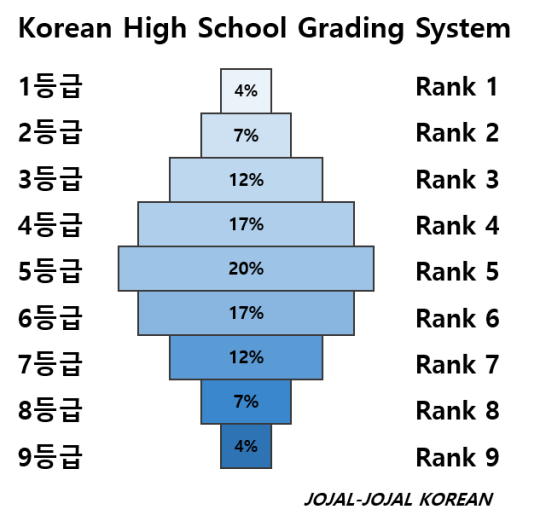#admin yu
*All verbs below are in original form(dictionary form).
존재하다 : to exist
선언하다 : to declare, proclaim
목격하다 : to witness
제안하다 : to suggest
조언하다 : to advise
개입하다 : to intervene
헌신하다 : to devote
축하하다 : to congratulate
환영하다 : to welcome
접근하다 : to approach
투자하다 : to invest
개선하다 : to improve
응원하다 : to cheer, support
설명하다 : to explain
오해하다 : to misunderstand, misconceive
해결하다 : to resolve
조절하다 : to adjust
계획하다 : to plan
보호하다 : to protect
조사하다 : to investigate
확인하다 : to check, verify, confirm
출발하다 : to depart, set off, start
도착하다 : to arrive, reach
설득하다 : to persuade
양보하다 : to yield, give way
희생하다 : to sacrifice
쟁취하다 : to achieve, win
야기하다 : to cause, bring about
실수하다 : to make a mistake
긍정하다 : to affirm
부정하다 : to deny
생산하다 : to produce
소비하다 : to consume, spend
인정하다 : to admit
소유하다 : to own, possess
봉사하다 : to serve, do volunteer work
유지하다 : to maintain
보조하다 : to assist
인용하다 : to quote, cite
대표하다 : to represent
선택하다 : to choose, select
거절하다 : to reject, refuse
촉진하다 : to promote, accelerate, boost
요구하다 : to demand, ask
사과하다 : to apologize
추측하다 : to guess, suppose
간섭하다 : to interfere
낭독하다 : to read aloud
관찰하다 : to observe
추구하다 : to pursue, seek
Written and edited by Admin Yu

눈 : snow
첫눈 : first snow of the winter
눈송이 / 눈꽃 : snowflake
결정 : crystal
서리 : frost
함박눈 : big snowflakes
진눈깨비 : sleet
눈보라 : blizzard
우박 : hail
폭설 : heavy snow
만년설 : perpetual snow
설경 : snow scenery
눈사람 : snowman
눈덩이 : snowball
눈싸움 : snowball fight
눈이 내리다 : to snow
얼다 : to freeze
녹다 : to melt, to thaw
하얗다 : white
새하얗다 : pure white
희다 : white
차갑다 : cold
춥다 : cold (weather)
(손이/귀가/코가) 시리다 : (hand/ear/nose is) cold
펑펑 : (adverb) shape of snow falling heavily (ex. 함박눈이 펑펑 내린다)
펄펄 : (adverb) shape of snow or powder blowing in the wind (ex. 흰 눈이 펄펄 내린다)
소복소복 : (adverb) shape of things piled up (ex. 길에 눈이 소복소복 쌓여 있다)
뽀드득 : (adverb) sound of stepping on a pile of snow
It’s snowing heavily in Korea!
-Written and edited by Admin Yu
Hi! This is Admin Yu. Today’s post will be on the academic grading system of high schools in Korea. I’m a Korean high school student so this topic is something I’m very familiar with.
9등급제 (9-rank system)
9등급제(9-rank system) is the academic grading system of high schools in Korea. The 9-rank system is a relative evaluation system. Students are given ranks from 1(1등급, Rank 1) to 9(9등급, Rank 9) based on students’ relative standing among all others who took the same class that semester.
In one semester, students take two big exams, 중간고사(midterm exam) and 기말고사(final exam), and do 수행평가(performance evaluation) for the classes they are taking. At the end of the semester, the scores of the two exams and performance evaluations are added up for the final score out of 100. Then the ranks are given out based on this score.
Top 4% of students are given 1등급(Rank 1), the next 7% 2등급, the next 12% 3등급, the next 17% 4등급, the next 20% 5등급, the next 17% 6등급, the next 12% 7등급, the next 7% 8등급, the next 4% 9등급. For example, if there are 100 students who take chemistry, the top 4 students will get Rank 1, the next 7 will get Rank 2, and so on.

등급컷(컷 is ‘cut’) refers to the minimum score that can get the rank. For example, if the 1등급컷 for chemistry was 95, the students who got 95 or over get Rank 1, and if the 2등급컷 was 90, students who got score below 95 but over 90 get Rank 2. ‘등급’ is often omitted, so you can say 1등급컷 or just 1컷.
You can see many students asking the teacher for 1컷 after exam is over. Although the real ranks are given by the final score, the exams are often regarded as the most decisive factors. So knowing the 1컷 of the exam score can give you a rough idea of your current position among other peers. 등급컷 of the exam can also tell us about the difficulty of the exam. If the 1컷 is very low, the exam can be regarded as very difficult.
Since only a few can get high ranks, a single mistake can sometimes be critical. Especially if the exam was easy. In schools where education fever is high, if the exam was too easy and too many students got 100, one mistake can drop your rank drastically. And if the number of students who got 100 exceeds the number of students who can get Rank 1, the ranking may start from Rank 2 or even 3. So it’s important to find the balance of difficulty of exams. If the midterm exam was too easy, the final exam is expected to be very hard to meet the difficulty balance.
The same 9-rank system applies to 수능(Korean SAT) as well. Students are given ranks relatively like the 9-rank system in high schools. However, to differentiate the scores, other things like standard score/Z score are used to evaluate the student. For example, 100 and 92 may be the same Rank 1 but their standard score would be different.
I hope this post helped you understand the grading system of high schools in Korea!
-Written and edited by Admin Yu
Hi! This is Admin Yu. Today’s grammar lesson will be on passive voice in Korean.
1. Passive Suffix
Passive verbs can be made by using passive suffixes -이/히/리/기-
- 보다(to see) → 보이다(to be seen)
- 묻다(to bury) → 묻히다(to be buried)
- 물다(to bite) → 물리다(to be bitten)
- 쫓다(to chase) → 쫓기다(to be chased)
The stem(어간) of passive verb includes the passive suffix! So when you conjugate the verb, you don’t have to change the suffix since stem is the part that doesn’t change.
경찰이 도둑을 잡다(The police catch a thief) → 도둑이 경찰에게 잡히다(A thief be caught by the police)
경찰이 도둑을 잡았다(The police caught a thief) → 도둑이 경찰에게 잡히었다/잡혔다(A thief was caught by the police)
바다가 보이는 방(room where sea can be seen = room with sea view)
산에 묻힌 보물(treasure buried in the mountain)
2. –어지다
‘-어지다’ can make passive voice.
- 만들다(to make) → 만들어지다(to be made)
- 이루다(to accomplish) → 이루어지다(to be accomplished)
- 지우다(to erase) → 지워지다(to be erased)
- 뒤집다(to turn over) → 뒤집어지다(to be turned over)
내 꿈이 이루어졌다(My dream came true)
지워진 기록(erased record)
3. -되다, -당하다
Noun + ‘-되다, -당하다’ can make passive voice.
- 결정(decision) → 결정되다(to be decided)
- 발견(discovery) → 발견되다(to be discovered)
- 가공(processing) → 가공되다(to be processed)
- 감염(infection) → 감염되다(to be infected)
- 계획(plan) → 계획되다(to be planned)
- 취소(cancel) → 취소되다(to be canceled)
대통령이 당선되었다(The president was elected)
파티가 취소되었다(The party was canceled)
- 고문(torture) → 고문당하다(to be tortured)
- 무시(ignorance) → 무시당하다(to be ignored)
그 아이는 부모에게 무시당했다(The child was ignored by his parents)
I hope this grammar lesson helped!
-Written and edited by Admin Yu
Here are some nouns and verbs that are used together or go well together!
*All verbs below are in original form(dictionary form)
한숨을 쉬다 : to sigh
한숨 : ⓝ sigh
소원을 빌다 : to make a wish
소원을 이루다 : to make a wish come true
소원 : ⓝ wish
약속을 지키다 : to keep a promise
약속을 어기다 : to break a promise
약속 : ⓝ promise
전화를 걸다 : to make a phone call
전화를 받다 : to pick up the phone
전화를 끊다 : to hang up
전화 : ⓝ telephone
마법을 걸다 : to cast a spell(magic)
마법 : ⓝ magic
소리를 지르다 : to scream
소리 : ⓝ sound
노래를 부르다 : to sing
노래 : ⓝ song
대가를 치르다 : to pay the price
대가 : ⓝ cost, price
시험을 보다 : to take a test
시험 : ⓝ test
코를 골다 : to snore
코 : ⓝ nose
신발을 신다 : to put on shoes
양말을 신다 : to put on socks
신발 : ⓝ shoes
양말 : ⓝ socks
책을 펴다 : to open a book
책 : ⓝ book
꿈을 꾸다 : to dream
꿈 : ⓝ dream
싸움을 걸다 : to pick a fight
싸움을 말리다 : to break up a fight
싸움 : ⓝ fight
-Written and edited by Admin Yu
